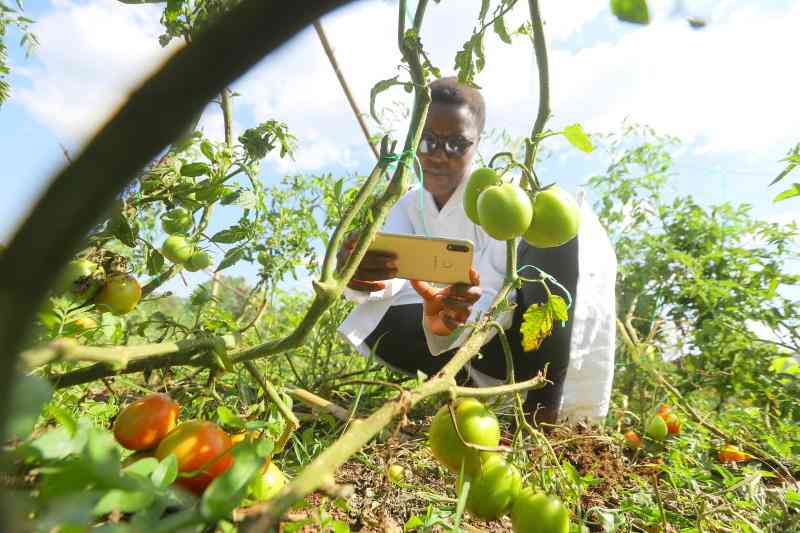
Lizzy Nyakundi a digital farmer takes pictures of her tomatoes before she posts them at her Nyansira farm in Kisii County. [Sammy Omingo, Standard]
Agriculture is the lifeblood of Sub-Saharan Africa, with approximately 60% of the population engaged in this sector. When we take into account a recent study by Dalberg Global Development Advisors, the figures become even more intriguing. The research estimates that there are approximately 450 to 500 million smallholder farmers worldwide. Many of them are located in Asia and Sub-Saharan Africa, collectively constituting 90 per cent of the farmer population in these regions and contributing to 80 per cent of the food production on the African continent.